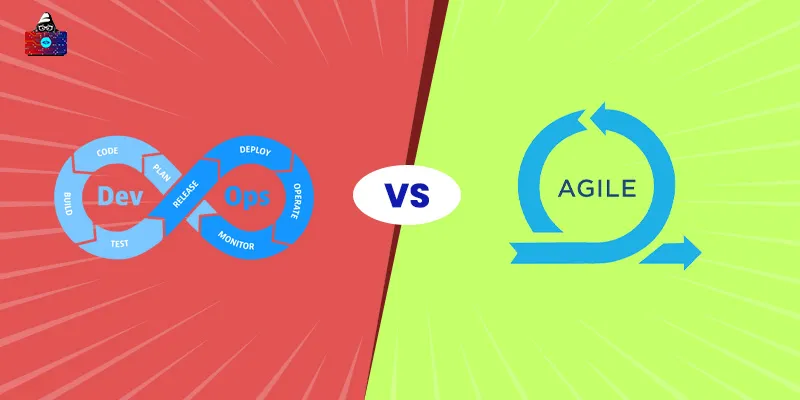Large enterprises and web-native Organizations adopt a culture called DevOps because it promises agility and flexibility in software development. Though it is a process, many devotees prefer it to say a culture that is more promising, and we can see that the DevOps moment is quite acceptable, and more and more technical communities are accepting it.
There is a lot to discover in DevOps. Here in this article, we have provided a simple explanation of What DevOps is. There are many definitions related to it, mostly, it depends on where this culture is applied.
What is DevOps?
The term DevOps is made up of two words Development and Operation, the term DevOps commenced popular in 2009 and now many Enterprises accept it. So, what is DevOps? It is a kind of process which includes the simultaneous involvement of Developers and IT operation for better development of applications and services, but DevOps Engineers prefer it as a culture.
Now, if you search for what DevOps is, you will get the result that it is a culture. The DevOps Definition says that it is a culture that is used to enhance the involvement of Developers and Operation teams simultaneously on a project or a deploy code to increase productivity and performance. It helps the organization delivers its applications and services at high velocity. It uses automation tools to catalyze its process of deploying or testing, or debugging any application which is supposed to deploy.
Basically, it is used to increase the delivery speed of an organization so the project could be finished before the time, and simultaneously it give the proper feedback from all the operation involved in it. It also provides better communication and collaboration between the Development and Operations Teams.
DevOps Life Cycle
DevOps is an integration of development and operation, and it has a Lifecycle that divides the complete process into a subprocess. The asset of the DevOps Lifecycle is it never ends, it forms a closed loop which makes it a continuous process.
 The DevOps Life Cycle is divided into 5 stages.
The DevOps Life Cycle is divided into 5 stages.
Development
Before we deliver anything, we first require an application or services development is the first stage of the DevOps Life Cycle. Though the development process itself is further divided, or we can say separate, so the complete team can work on their individual.
Testing
The Quality Assurance team takes care of the testing and tries to fix the bugs in running the application.
Integration
Integration mostly works on the previously deployed application. Here, new functionality is introduced in the application, and testing also takes place. A continuous and iterative process of testing takes place with the integration stage.
Deployment
In this stage, deployment of the project or application takes place. The deployment process is one of the main benefits DevOps provides us. During the deployment of new functionality in our application, there should be no distortion in the live traffic.
Monitoring
In this stage, the operation team continuously monitors the deployed product and takes care of any new bug that could not be fixed during testing.
Why do we need DevOps?
- Traditional methods were not effective for the organization because of the rigid structure. On the other hand, DevOps provide more flexibility to the organization.
- Now development and operation teams work together.
- Before DevOps developers, teams and Operations teams used to work isolated, and there was no strong communication between them which made the development and testing process very slow, but with DevOps, the development and Operations teams collaborate, which increases productivity.
- DevOps propose automation tools that are more error-proof.
- It makes the deployment of the application easier without disturbing the live traffic.
Benefits of Accepting DevOps Culture:
Speed
It clearly observed by the organization after accepting DevOps, their application delivery velocity has increased.
Rapid Delivery
DevOps is a continuous process, and its pace of development and testing is quite impressive. As fast as we develop and test our application to fix the bug more functionally, we can add to our application which gives us more space in business and market.
Reliability
With every new functionality and update, the infrastructure of your application will grow strong and reliable, so more and more customers will join your application.
Scalability
With automated tools, you reduce the risk of system failure and continuously help us to manage our complex structure. The automation tools help to manage your application at scale.
Teams Collaboration
DevOps offer teams collaboration, with less isolated working. With DevOps, both developer and operation teams work altogether, which reduces the bugs and enhances the continuous workflow. Collaboration helps to reduce inefficiency and save a hell of a lot of time.
Security
DevOps model uses automated compliance policies, fine-grained controls, and configuration management techniques that promise more security.
People are also reading:
- DevOps Certifications
- How to become a DevOps Engineer?
- Top DevOps Tools
- DevOps Interview Questions and Answers
- Top CSS Interview Questions & Answers
- QA Tools
- Integration Testing Tools
- Top Linux Interview Questions & Answers
- 10 Best Online Linux Terminals
- What is the Internet of Things?
- What is MySQL?




